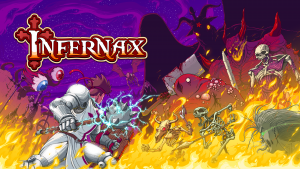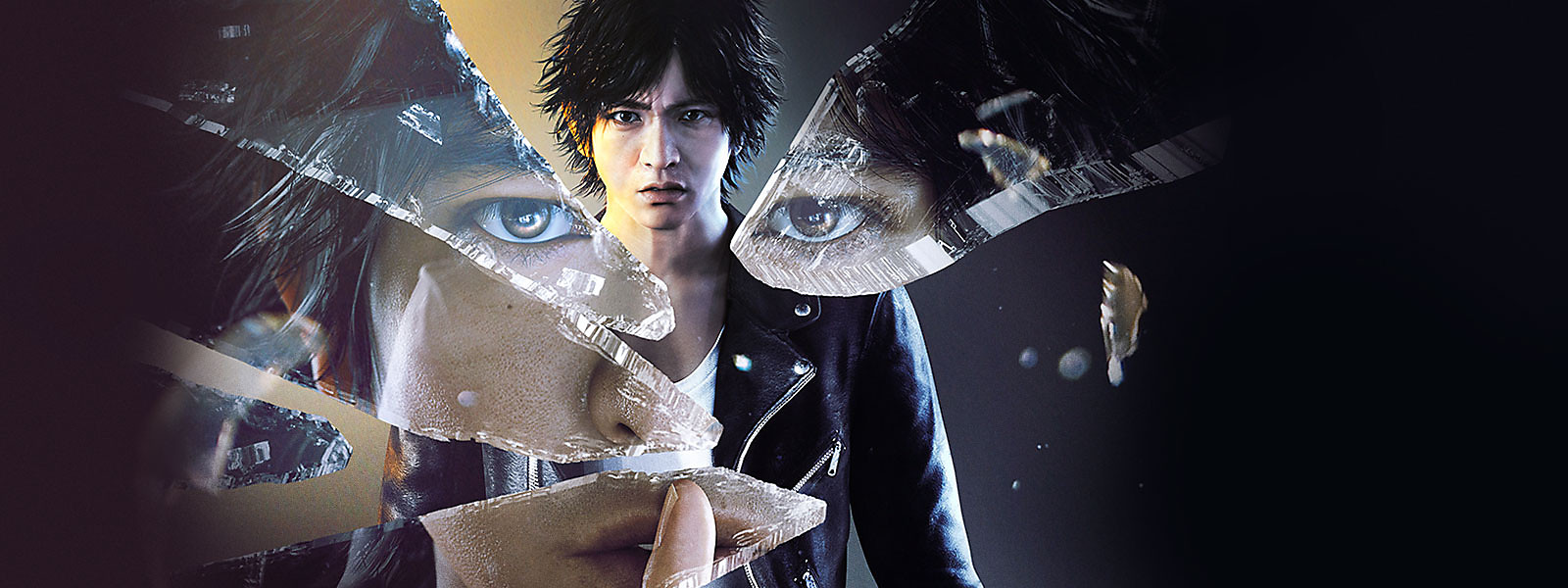
The folks at Ryu Ga Gotoku Studio tend to make a very particular type of game. Defined by their work on the Yakuza series, they are known for semi-open world titles that deliver melodramatic, grave, and labyrinthine stories, which are complemented by goofy and sincere side content. In between the bouts of narrative, you can blow off steam by punching dudes, participating in mini-games, or dating. For better or worse their Yakuza spin-off Judgement follows the blueprint of their previous titles quite closely. The story features a complex mystery at its core, flanked by a host of endearing side missions. Combat has a similar cadence, and the proceedings are even set in Kamurocho, the same fictional red-light district of Tokyo that is the backdrop of its parent series.
However, instead of following the life of an ex-Yakuza, we follow Yagami, a disgraced lawyer who now works as a private detective. Three years ago he successfully led the defense for an accused murderer, only for that same man to be convicted of a second homicide. Racked by guilt, he switches careers and is only pulled back into the fold when a string of serial murders rock Kamurocho. While one would assume that playing as a detective would be substantially different than playing as a reformed gangster, this is mostly not the case. The core gameplay loop still consists of roaming the streets of this familiar district, finding side missions and confronting roving bands of miscreants along the way.
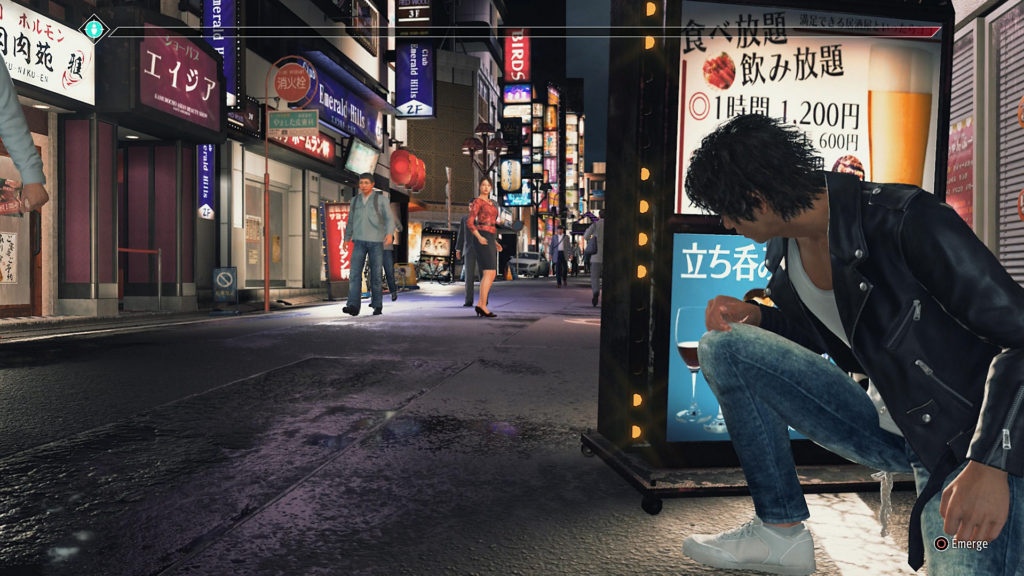
Unfortunately, the new mission types that are geared towards representing Yagami’s sleuthing are by far the most tiresome elements of the game. In some segments, you must uncover evidence at a crime scene. However, this generally just consists of wandering around while scanning every bit of detritus in the proximity until you stumble upon the next piece of evidence. These I Spy “puzzles” are tedious and kill the flow of the experience due to the fact that they rarely force you to employ deductive reasoning. Even worse are the tailing missions, in which you must follow a target while they slowly crawl forward, turning around every few steps to ensure they aren’t being followed. This mission type has become the underwater level of modern open-world games, almost always guaranteeing slow filler that demands minimal brainpower. At least in its contemporaries like Assassin’s Creed, this archetype is slightly bolstered by the mobility of free climbing. Here you just hold the joystick forward, occasionally ducking behind cover when your target stops and turns around. The only part of the detective work that ties into the game’s other strengths are the conversation options, which force you to pick the right line of dialogue or deductions to uncover mysteries.
Luckily, the detective hook ties into the narrative far more successfully than the gameplay. The Yakuza games tend to focus on mysteries that gradually reveal themselves in layers. Government agencies, shadowy organizations, and the machinations of criminal underworlds coalesce into grand conspiracies which affect the lives of our characters, often unjustly. Judgment successfully tells a similar sort of tale, and since we follow a detective, all of the deduction, sleuthing, and case-building flow naturally. Like in their previous games, a steady trail of bread crumbs maintains tension throughout the lengthy forty-hour runtime. Reveals are constant, taking us closer to the truth while also unveiling more about the characters. And the plot isn’t only exceedingly entertaining, it also feels as though it has a great deal to say.
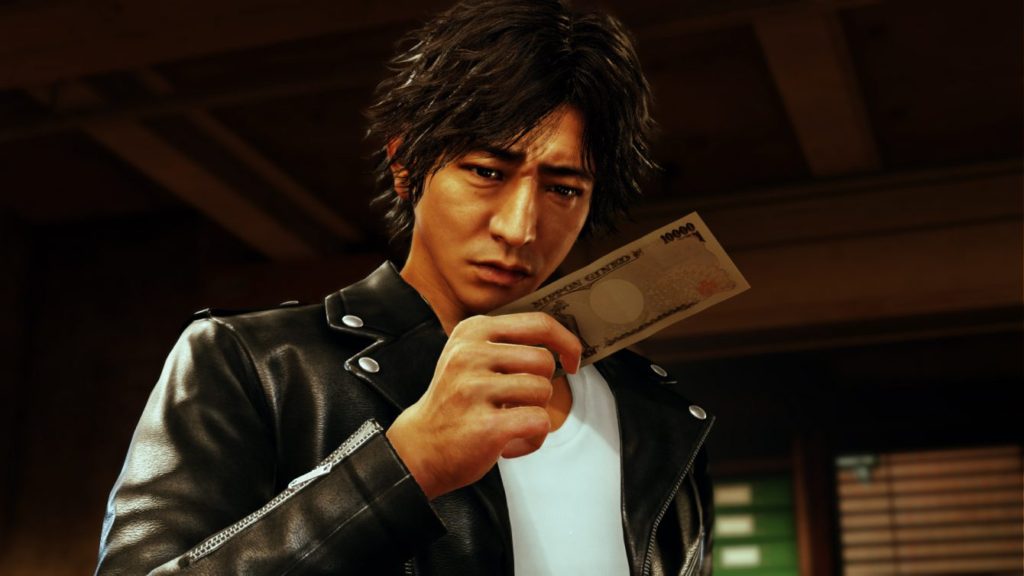
As the true nature of the grisly murder’s are revealed, themes of utilitarianism, justice, guilt, and duty snap into focus. For the most part, the bad guys don’t simply act out of one-sided malice, but are either bound by some “higher purpose”, or coerced into action. And even the most despicable antagonist justifies his presence through his imposing demeanor, a shadow of dread hanging over every scene in his wake. Our protagonists are also bound by well-explored motivations, each containing their own mini-arcs that tie into a story concerning the nature of justice, and how the greedy, powerful, and self-absorbed trample over that justice. The character’s pseudo-familial and romantic bonds give dramatic weight to the various twists and turns, pulling us further into the happenings of the plot. Although the protagonist Yagami can come off as a little wooden at times, the supporting cast is strong enough to make this story more than just a roller-coaster ride of plot twists.
All that said, enjoyment of this tale does require a certain revelry or at least tolerance for melodrama. Characters will clash in bouts of hot-blooded action that are deeply indebted to Asian action movies and anime, with important boss fights preluded by tightly choreographed exchanges that end in a title card. This type of undiluted hype is by far one of the most memorable and exciting aspects of theses studio’s games, but some will find it more silly than cool. Another hurdle is that the humor can occasionally fall flat, with female characters, in particular, getting the short end of the stick. There are more than a few jokes or plot developments that seem to imply that the women in this story can only advance the narrative through being attractive, a disappointing notion considering that many of these characters lawyers who could easily sway the proceedings of the plot.
The humor in the side cases fares much better, with many of these missions oscillating between ridiculous and emotionally sincere. While in another medium it might feel tonally jarring to abruptly switch between a grim examination of societal corruption and a detour in which the protagonist must pretend to be vampire whose catchphrase is “Offer unto me your pulsing blood!”, here it feels perfectly natural. This is due to the compartmentalization of main story missions and side missions, both in a gameplay sense and in how they are presented. While most story missions have fully voiced dialogue and cutscenes, the side missions are often presented via walls of text, creating a natural barrier between these two modes of storytelling.
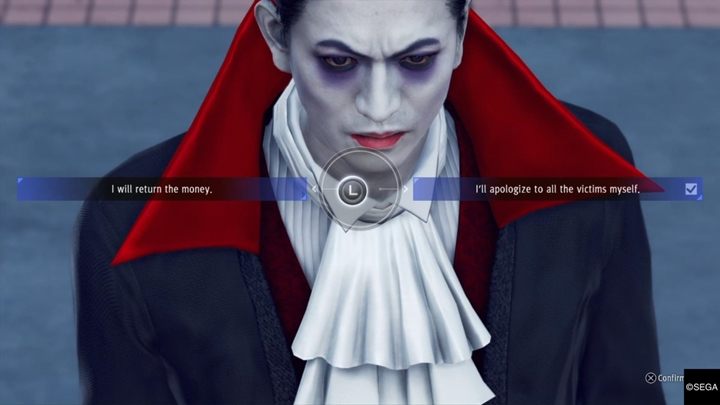
Beyond the successful tone switching, the side missions are worth completing because of the vignettes’ humor and weirdness. In one case we follow a famous idol whose wig repeatedly flies off his head, and in another, you must investigate a mysterious case of “paranormal” activity. Some side missions even skew more serious, taking full advantage of the detective trappings of this story, like when you must unravel a whodunnit. Somewhat frustratingly, side cases can only be unlocked through building friendships with the citizens of Kamurocho, a repetitive affair which usually involves buying items from a particular clerk or performing some other menial task. While the payoff off is generally worth the tedium, getting to the interesting content does require busywork.
During both the side and main missions, it is common for brawls to break out. As Yagami himself describes it, the people of Kamurocho tend to get quite punchy. Like every other element of Judgement, the combat systems feel deeply indebted to what is found in the Yakuza series. Finding some degree of common ground between fighting games and character action games, you must beat down on various hordes of enemies, utilizing your two different combat styles to take on different types of foes. There are a few basic combos, which mostly vary in their speed, damage output, and usefulness for crowd control. Like in a fighting game, as you beat up on your enemies, you fill a meter which unlocks powerful finishers. Meter can also be spent to enter a powerful EX state where your moves are less interruptible and deal more damage.
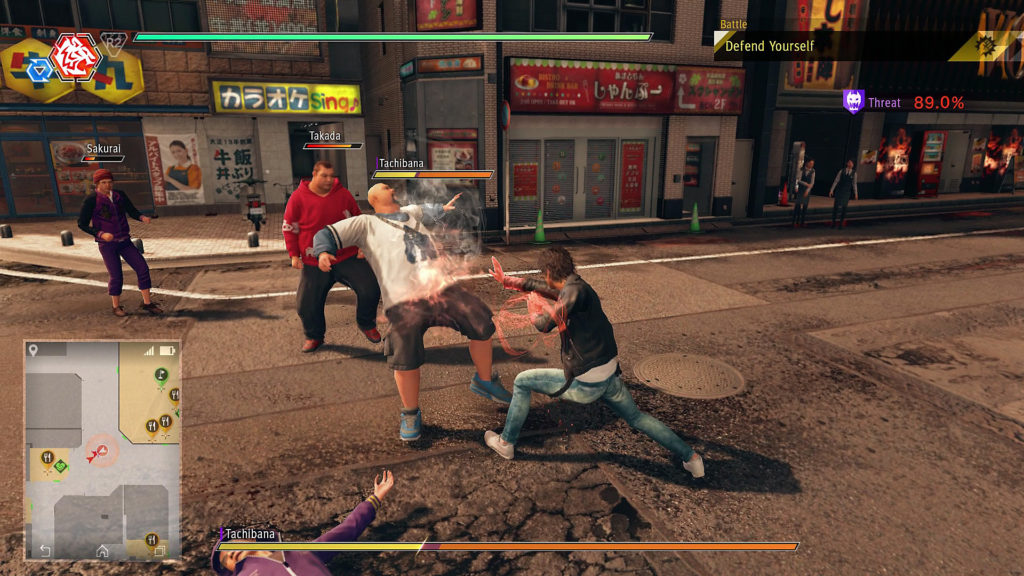
More maneuvers, finishers, passive buffs, and even non-combat abilities can be unlocked through spending skill points. However, some of these unlockable abilities feel somewhat essential to the overall experience, and until you’ve beefed up Yagami with speed buffs and additional moves the brawls can feel a little slow and simplistic. It doesn’t take long to get over this initial hump, but it is somewhat frustrating that more maneuvers aren’t unlocked upfront, and that by default the combat is sluggish. Still, once properly upgraded, fights become much more engaging. Your blows send opposing mobs reeling, and finishing moves let you obliterate your opponents with suplexes, dropkicks, and other wrestling moves. There are little wrinkles of complexity, like how using a particular finisher multiple times on a single enemy deals reduced damage each subsequent time, requiring varied employment of these moves for boss fights. For harder bouts there is a juggling act between clearing out smaller enemies and focusing on the big bad, creating a challenging dynamic where you must frequently switch between the two fighting stances frequently. It’s definitely a detriment that many of the best abilities are locked behind upgrades, but at its best Judgement grants the gratification of a Dynasty Warrior game, letting you plow through swathes of enemies, while also providing additional depth that is utilized for the boss fights.
But even with the combat mostly being a success, for those who have been keeping up with Ryu Ga Gotoku’s recent output, it’s difficult to not be somewhat fatigued by steady reuse of this formula without innovation. Between the recycled world, rehashed mini-games, and similar combat systems, it feels like it is time for a more comprehensive rework. And it doesn’t help that the detective missions, which are the biggest new addition, come across as tedious. There was a time when roaming the streets of this city was a complete novelty, the mix of brawls, management simulations, and off-the-wall weirdness putting to shame it’s more well-funded genre peers, but Judgement doesn’t reach these same highs.
Luckily, even as many of the gameplay hooks grow stale, the fundamental charm of the narrative persists. Yagami’s quest for truth presents a winding mystery with more than a few interesting insights. The optional content is quirky, funny, and altogether pleasant, granting a wide variety of vignettes that are a welcome palate cleanser from the heavy material of the central story. And while many of the detective mission types can be a slog, the combat offers just enough complexity to carry the rest of the experience. While it is undeniably disappointing that Ryu Ga Gotuku didn’t use this spin-off to innovate on the Yakuza formula, wandering the streets of Kamurucho is still a fun time due to the reasonably deep combat and the plethora of side content. And most importantly, the central narrative is riveting, dramatically satisfying, and packs thematic depth. In a landscape dominated by games trying to escape any sort of heavier messaging, Judgment is quite refreshing.
Rating: 8.0/10

